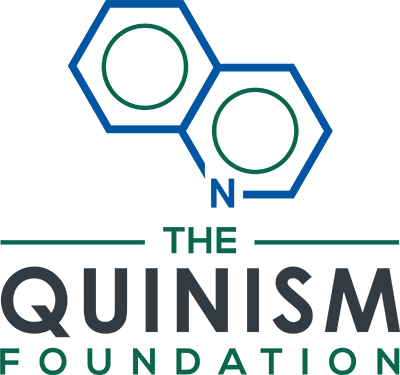The Quinism Foundation Partners with the National Centre for Trauma to Screen U.K. Veterans for Symptomatic Mefloquine Exposure
Use of the Two-Question White River Mefloquine Instrument (WRMI-2) Will Permit the National Centre for Trauma to Identify Veterans at Risk of Mefloquine Poisoning
WHITE RIVER JUNCTION, VT. (PRWEB) JULY 30, 2018
The Quinism Foundation has partnered with the National Centre for Trauma to license the two-question White River Mefloquine Instrument (WRMI-2) to screen U.K. veterans for a history of symptomatic exposure to the antimalarial drug mefloquine (marketed in the U.K. as Lariam®), which has been commonly prescribed by the U.K. Ministry of Defence (MoD).
“We are delighted to make our White River Mefloquine Instrument available to our partners at the U.K. National Centre for Trauma,” said Remington Nevin, MD, MPH, DrPH, executive director of The Quinism Foundation.
“Mefloquine poisoning from symptomatic exposure is the likely cause of a hidden epidemic of neuropsychiatric illness among U.K. veterans,” said Dr. Nevin. “Symptoms of mefloquine poisoning, including tinnitus, dizziness, anxiety, paranoia, insomnia, and nightmares and abnormal dreams, are frequently misattributed to other deployment-related conditions, including traumatic brain injury and post-traumatic stress disorder. Use of the WRMI-2 should be considered standard of care during the evaluation of veterans at risk of mefloquine exposure. If the veteran reports symptomatic exposure, clinicians should retain an index of suspicion that any chronic neurologic or psychiatric symptoms, including those reported during use of the drug, could represent effects of mefloquine poisoning, a medical condition also known as chronic quinoline encephalopathy or neuropsychiatric quinism.”
“The National Centre for Trauma is proud to partner with The Quinism Foundation to include the WRMI-2 as part of the overall assessment within our work,” said Mandy Bostwick, MSc, MA, and ISSTD Specialist Trauma Psychotherapist at the National Centre for Trauma. “This opportunity will help us to provide a complete assessment for serving and ex-armed service personnel.”
In 2013, the U.S. Food and Drug Administration (FDA) warned that mefloquine can cause long-lasting and even permanent adverse effects. In 2014, the European Medicines Agency (EMA) warned of “a causal relationship between mefloquine and the occurrence of long-lasting and even persistent neuropsychiatric effects,” and speculated that these were due to “permanent brain damage.” [1] Recent research confirms that nightmares and other abnormal dreams affect nearly 1 in 7 of those exposed to mefloquine, [2] and that more than 1 in 5 of those who complain of nightmares report this symptom continuing as long as three years after exposure. [3] Authors at the U.S. military’s Walter Reed Army Institute of Research (WRAIR), where mefloquine was developed, have noted that “mefloquine toxicity can persist for several years after exposure has been discontinued, with little to no abatement in symptoms over time. Furthermore, given the overlapping symptoms of post-traumatic stress disorder and mefloquine toxicity, it can be challenging to distinguish between the two diagnoses.” [4]
“In 2018, the EMA updated the product data sheet for mefloquine, warning that symptoms of insomnia, along with abnormal dreams or nightmares, requires mefloquine’s immediate discontinuation,” said Dr. Nevin. “This update makes mefloquine impracticable for military use. Fortunately, the U.K. MoD has recently declared mefloquine to be ‘a drug of last resort’ and has all but eliminated its use.”
Dr. Nevin noted The Quinism Foundation plans to partner with other organizations to make the WRMI-2 available internationally to aid in screening veterans and others at high risk of having had mefloquine exposure. The Quinism Foundation has called on the U.S. Department of Veterans Affairs (VA) to screen all recent U.S. veterans for a history of symptomatic mefloquine exposure.
“There is currently no official assessment of mefloquine use here in the U.K. for serving and ex-armed service personnel,” said Ms. Bostwick. “The WRMI-2 fills that void. I hope other organizations will sign up to use it.”
About The Quinism Foundation
The Quinism Foundation, founded in January 2018, in White River Junction, Vermont, promotes and supports education and research on quinism, the family of medical disorders caused by poisoning by quinoline drugs, including mefloquine and tafenoquine. Executive director Dr. Nevin is a board-certified occupational medicine and preventive medicine physician and former U.S. Army medical officer and epidemiologist. He is author of more than 30 scientific publications on malaria and the quinoline antimalarials, including “Screening for Symptomatic Mefloquine Exposure”, published in Federal Practitioner (see: https://www.mdedge.com/fedprac/article/132560/mental-health/screening-symptomatic-mefloquine-exposure-among-veterans).
About The National Centre for Trauma
The National Centre for Trauma is a not-for-profit clinical pioneering treatment center for Armed Forces and Ex-Armed Forces personnel suffering Complex PTSD, Mild Traumatic Brain Injury (mTBI) and Chronic Quinoline Encephalopathy (CQE). Our work involves working closely with international partners to provide scientific evidence which will be used to assess, diagnose and treat these three debilitating conditions to help protect those that have protected us.
1. Nevin RL. A serious nightmare: psychiatric and neurologic adverse reactions to mefloquine are serious adverse reactions. Pharmacology Research & Perspectives. 2017; 5(4): e00328.
2. Tickell-Painter M, Maayan N, Saunders R, et al. Mefloquine for preventing malaria during travel to endemic areas. The Cochrane Database of Systematic Reviews. 2017;10(10):CD006491.
3. Ringqvist Å, Bech P, Glenthøj B, et al. Acute and long-term psychiatric side effects of mefloquine: A follow-up on Danish adverse event reports. Travel Medicine and Infectious Disease. 2015;13(1):80–88.
4. Livezey J, Oliver T, Cantilena L. Prolonged Neuropsychiatric Symptoms in a Military Service Member Exposed to Mefloquine. Drug Safety Case Reports. 2016;3(1):7.

